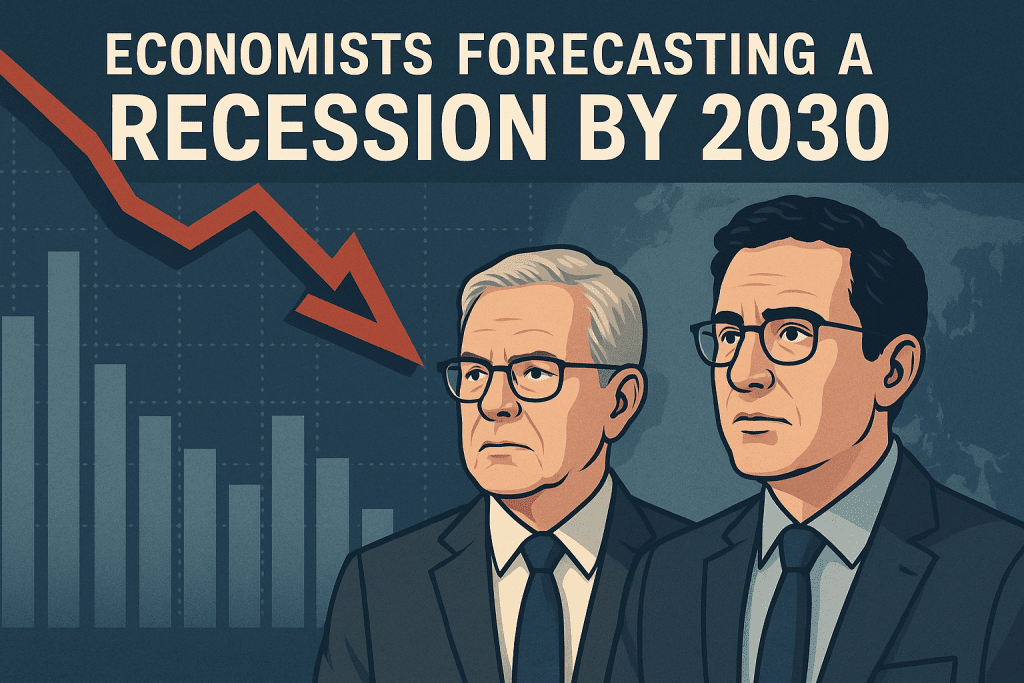CEOs are playing back to me that “the sky is falling!.” They hear from some economists that they see a significant recession coming around 2030—and CEOs of large and small companies are already reacting. These CEOs are often driven by fear of what’s to come. Many are quietly exiting their companies or preparing to. Some have entered the time of the “Deep Freeze” where making no decision seems like the best one. What is the right one? The time to act is now, not when the storm is upon us.
As a corporate anthropologist and Blue Ocean strategist, I bring a unique perspective to the table. Having worked with hundreds of companies navigating change, I can confidently say that today feels different. We’re not simply heading for another down cycle—we’re approaching a massive restructuring. And companies are not just stuck or stalled. Their leaders are facing the ambiguity that is the most disturbing for people.
In times like these, there is no certainty—but great opportunities.
Here’s what I see coming—and what CEOs can do to prepare for it. William Gibson told us that “The future is already here — it’s just not very evenly distributed.” Don’t be surprised if you are already facing economic turmoil in unfamiliar territory.
The Future Is Restructuring Today’s Business Environment
This is a time to rethink what you have always thought was the right way to build your business. But,
- This won’t be a typical recession. This is a transformation, and it will be a structural shift driven by AI, climate disruption, geopolitical tension, and a massive generational wealth transfer.
- Business models are aging out. Many mid-market firms were built for a different time—before recurring revenue models, before digital-native buyers, and before automation could upend entire departments.
- Capital will get more selective. Buyers and investors are already pulling back from undifferentiated companies. The “good enough” business is no longer good enough.
Who is Telling Us to Beware?
Here are two who are highly regarded economists:
1. ITR Economics (Brian and Alan Beaulieu)
A well-regarded forecasting firm, ITR Economics has been warning of a “2030s Great Depression” for several years. Their projections indicate a severe, multi-year contraction driven by long‑term debt and structural imbalances. They’ve emphasized business resilience planning now, warning that without intervention, a decades‑long downturn could unfold.
2. Daron Acemoglu (MIT, Nobel Laureate)
In a recent Financial Times commentary, Daron Acemoglu outlines a potential plunge into depression by 2030, spurred by factors such as unchecked AI speculation, weakening institutions, and political division. He paints a scenario where institutional failures could culminate in economy‑wide collapse by then.
Actions CEOs Should Take Today
What should you do? Pause, perhaps, and think like you were a start-up all over again for a different time with new ways of doing business, and perhaps even an entirely new market to serve. Let’s begin:
- Reimagine Your Strategy, Not Just Your Cost Structure
Now is the time to think in terms of Blue Oceans. Where are your non-customers? What value can you deliver that others ignore? Transformation starts by stepping out of the competitive race and finding uncontested market space.
- Know Your Value—Before Someone Else Does
Even if you aren’t planning to sell, it’s a good idea to get your business valued. Tighten your financial reporting. Know your true margins. In a high-risk environment, data-driven clarity is your best shield.
You should listen to Dave Bookbinder on our Podcast, On the Brink with Andi Simon. He is a specialist in business valuation. In our podcast, “The Real ROI: People and Culture Drive Business Value” he strongly advocates for doing your groundwork for business valuation before you need or want to sell it. And remember, your people and your culture are among the strongest part of your value.
- Don’t Sell Without a Purpose
Exiting is an option—but not a strategy. I see too many owners who sell without a next chapter in mind. If you’re planning a transition, also plan your reinvention. Erika Baez-Grimes did a great podcast with us about this very topic. Check it out: “Erika Baez Grimes: Purpose-Driven Business Transitions.” Erika sells companies very day. The sellers are happy for a moment and confused, scared, and lost after that moment has passed. You must have a plan.
- Build Culture Before the Storm
During uncertainty, your culture is either your greatest asset or your most significant liability. Invest in leadership development. Build trust. Create clarity. These are the things machines can’t automate—and your people need most.
Your culture is not your mission, values, and hope. Culture is how you get things done . People are at the core of that culture. Prepare them and you for the changes coming.
- Embrace Scenario Thinking
Don’t predict. Prepare. Map 3–5 future scenarios: tech disruption, capital contraction, new regulations. Then, design flexible responses. This pre-work makes you resilient—and gives you an edge when others freeze.
One Final Thought
If you’re a CEO or owner wondering what to do—don’t retreat. It’s time to rethink. The companies that will thrive through this coming decade won’t be the biggest or the cheapest. They’ll be the ones with the clearest purpose, the boldest vision, and the courage to act before the storm hits.
If you’d like help thinking differently about your future, let’s talk.
From Observation to Innovation,
CEO | Corporate Anthropologist | Author
Simonassociates.net
Info@simonassociates.net
@simonandi
LinkedIn




